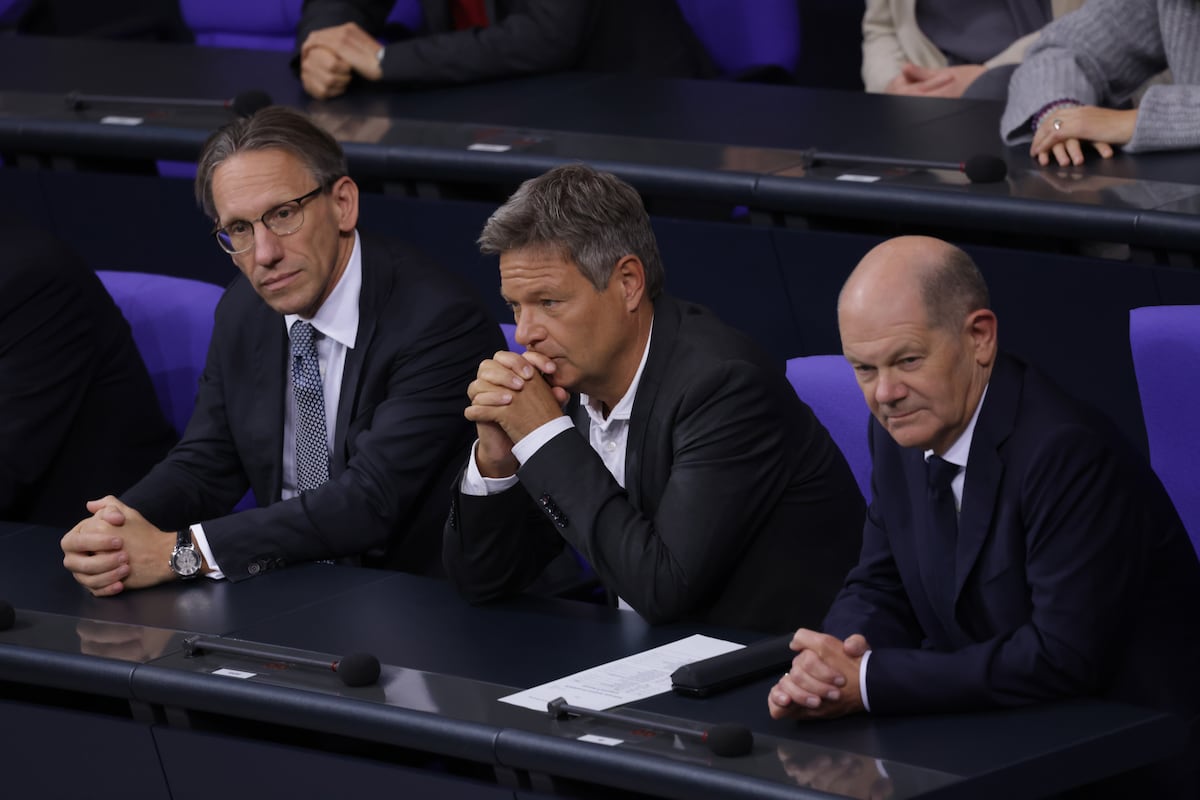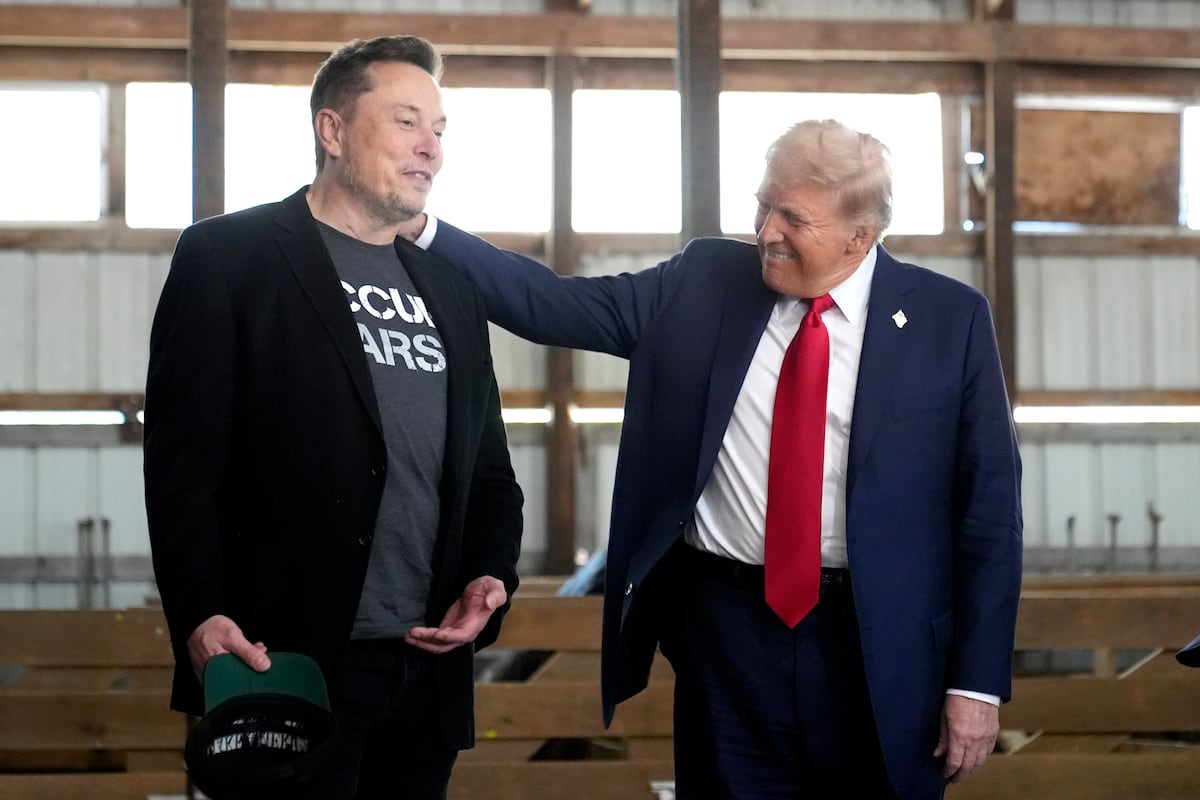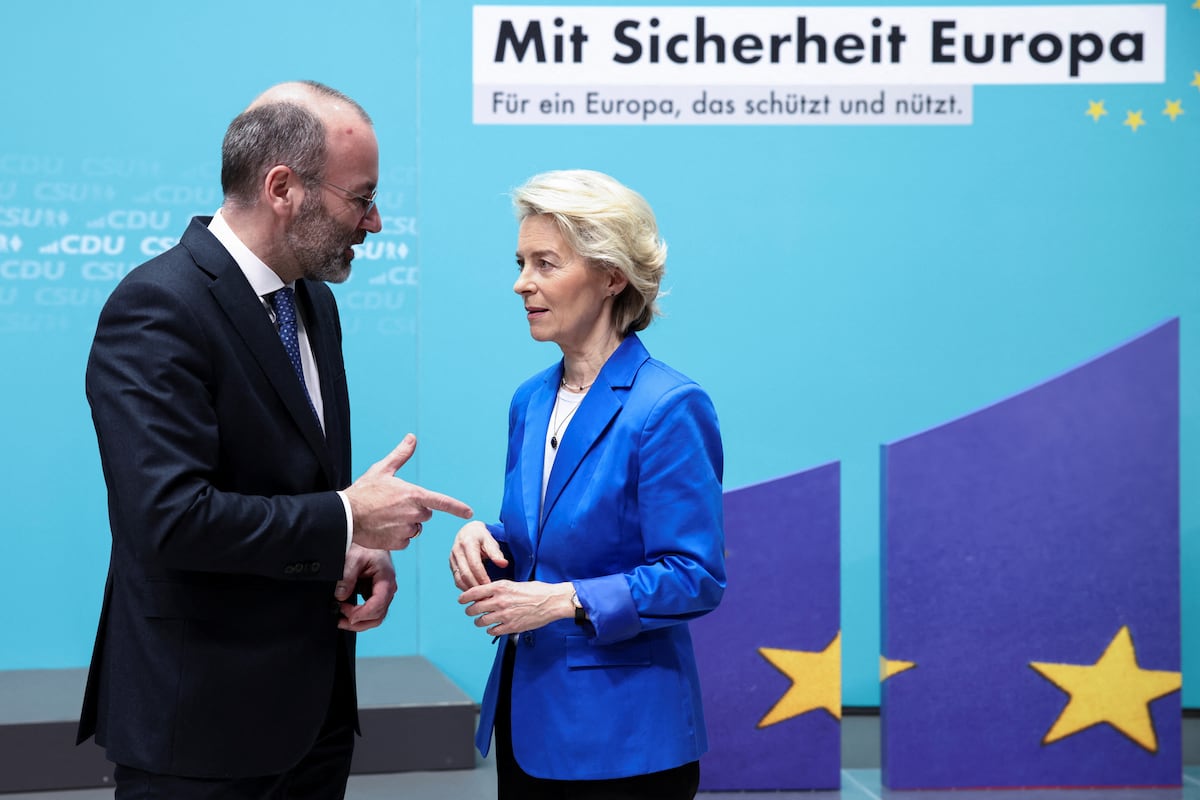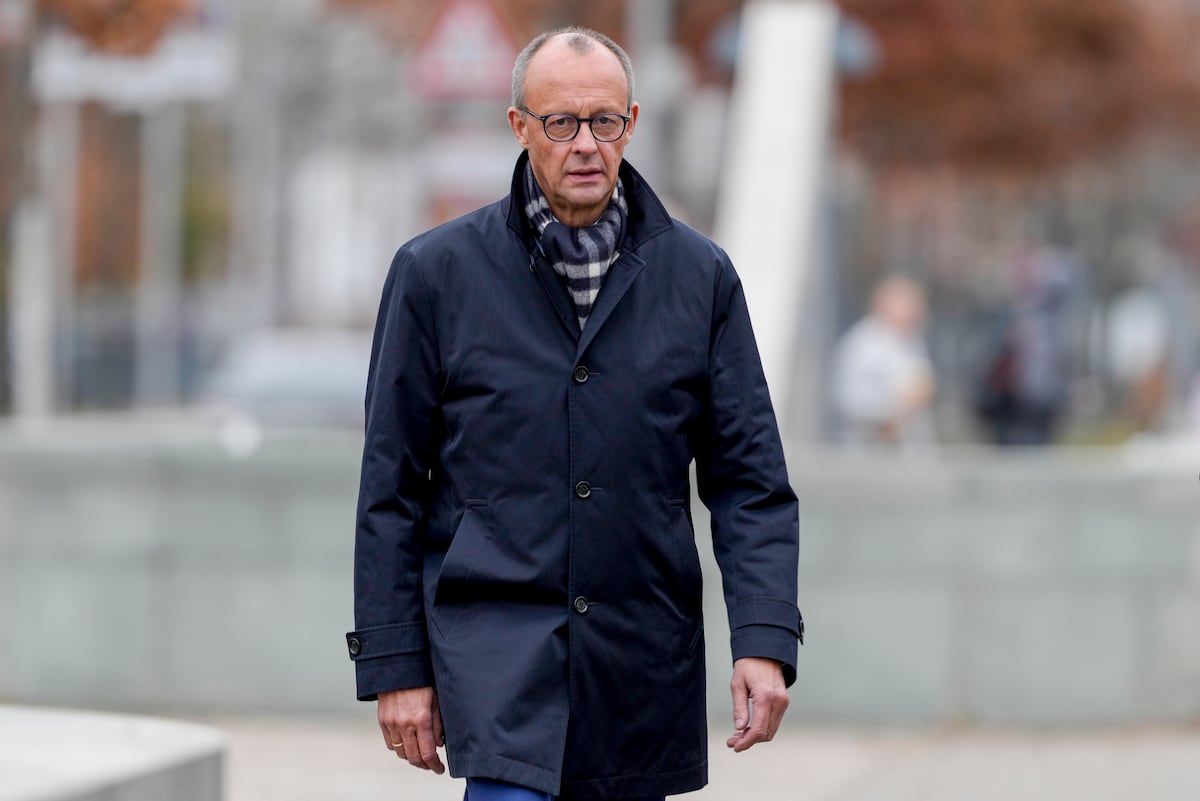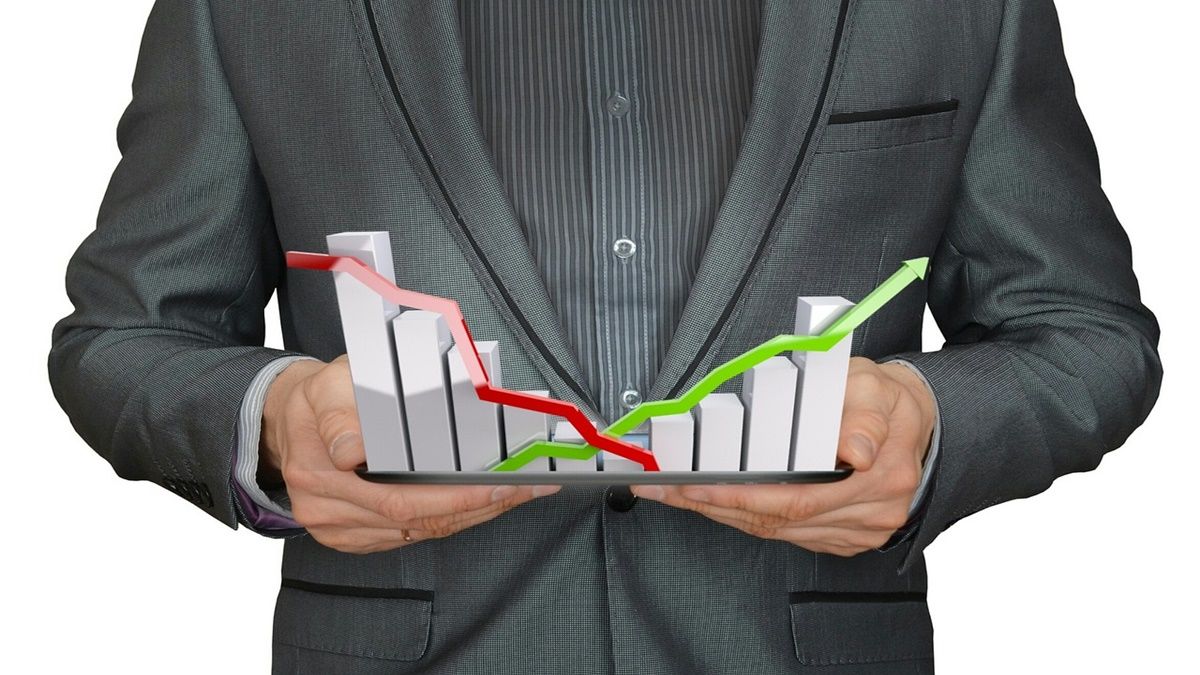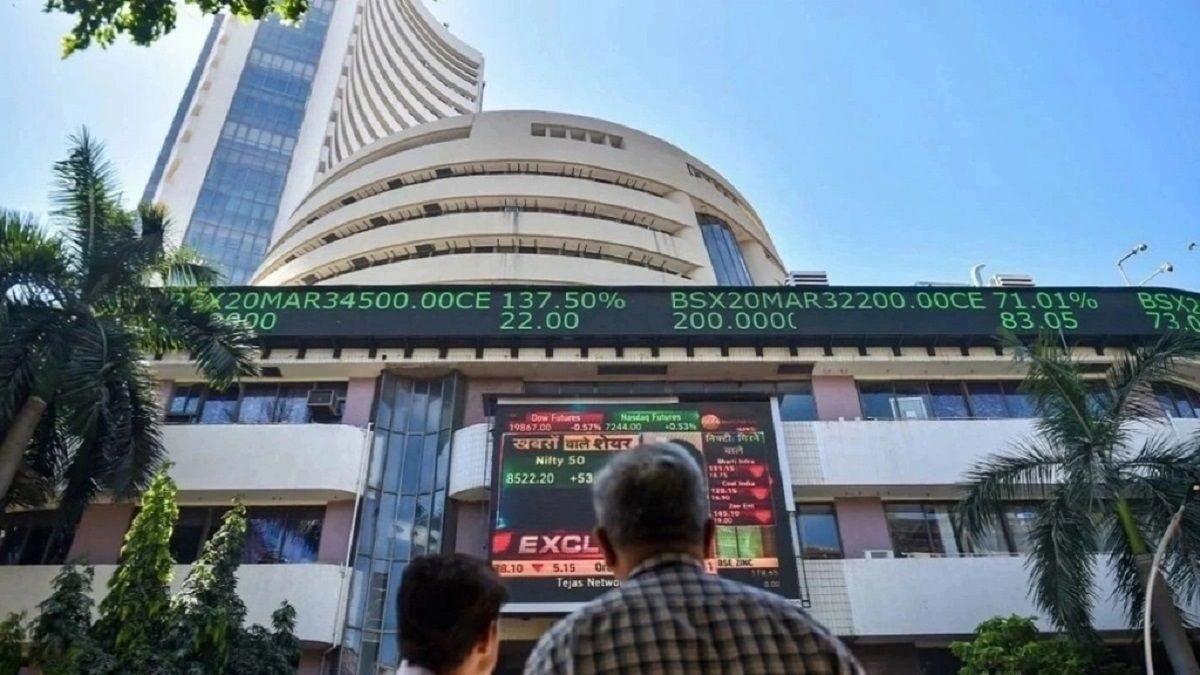Moderates resist in Germany. For now. The extreme right aspires to obtain its best result since the post-war in the early elections in three months and a new populist left will burst into the Bundestag after its successes in several regional elections. But the broad moderate group, which includes social democrats, Christian democrats, environmentalists and liberals, hopes to withstand the pull and be able to form coalitions that in the coming years will govern from more or less centrist positions.
The electoral campaign will coincide with the replacement of Donald Trump in the White House, a symbol of the strength of right-wing populism in the West, and a model for many. The Germans will go to the polls in early elections less than a year after, in neighboring France, other early elections gave the best result in its history to Marine Le Pen’s National Rally (RN) and made her party a piece decisive in governance.
In other countries, from Italy to Hungary and the Netherlands, leaders and parties that until recently were considered on the margins of the moderate current that built the European Union are already governing. In Brussels and Strasbourg, headquarters of the European Parliament, the cordon sanitaire is fraying due to the electoral strength of these radical formations. Germany, Europe’s leading economy and a geographically and politically central country, is the unknown.
The key may be provided by the next elections, decided after breaking up last week, a year before the end of the legislature, the coalition of social democrats, environmentalists and liberals that had governed the country since 2021. The chancellor, the social democrat Olaf Scholz, dismissed his finance minister, the liberal Christian Lindner, and two more ministers from this party, and activated the calendar to dissolve the Bundestag and go to the polls.
On December 16, Scholz will submit to a motion of confidence that he will lose, lacking a majority since the end of the coalition. Elections can then be officially called for February 23. After the Christmas break, a rapid campaign will begin that could lead to a more fragmented and radicalized chamber than the current one.
Could the French or Dutch scenario be repeated? Are you about to fall also the flagship country of consensus and moderation? Will it resist Mittethe wide German center?
“In these elections? No, no, no,” responds in the city of Wiesbaden, where the Greens/Alliance 90 are holding their congress this weekend, the outgoing co-president of the party, Omid Nouripour. “I think we have a strong center, even if it is getting smaller.”
The atmosphere in Wiesbaden, just a few days after the fall of the coalition, reflected this feeling. The ecologists see themselves as a central party, with the capacity to reach agreements with the democratic right and left, and they readily contemplate a coalition with the Christian Democratic right if the numbers are given.
If the elections were held today, the Christian Democratic Union/Christian Social Union (CDU/CSU) of Friedrich Merz would get 32%, according to a survey published this Saturday by the INSA institute that broadly coincides with that of the main demographic institutes. In second position, with 19%, would be the far-right party Alternative for Germany (AfD), present in the Bundestag since 2017, but never as a second force. An earthquake for a democracy built on the ruins of National Socialism. Chancellor Scholz’s Social Democratic Party (SPD) would be third, with 16%.
The Greens/Alliance 90, who this Sunday will consecrate the current Minister of Economy, Robert Habeck, as a candidate, would take 10%, and the Sahra Wagenknecht Alliance, named after the dissident of the post-communist left who combines measures, would take 8% progressive social, conservative on immigration and pacifist in the face of the Russian invasion of Ukraine. The Liberal Democratic Party (FDP), the trigger for the fall of the coalition, would not reach 5% and, with these results, would be left out of the chamber.
“The center will endure,” says Joseph de Weck, a specialist at the Institut Montaigne think tank and columnist in the German magazine International Politik. “Germany is more or less 20 years behind when it comes to the rise of populism,” he adds, referring to the fact that, compared to a country like France, these forces are generally weaker. Here the phenomenon advances, but at a different pace. In the last French presidential elections, in 2022, Le Pen on the extreme right, Jean-Luc Mélenchon on the radical left and other candidates on the extremes added more than half of the votes. In the 2024 legislative elections, Le Pen obtained more than 30%.
In Germany, furthermore, the cordon sanitaire is maintained. The Christian Democrat Merz, favorite to be the next chancellor, recalled this week before the Bundestag that “there will be no collaboration” with the AfD. According to the polls, moderate parties should add around three quarters of the votes, enough to continue governing. It remains to be seen with which coalition.
“It seems pretty clear that the next German government will be led by a centrist, probably Friedrich Merz,” says De Weck. Merz could ally himself with the Social Democrats, the Environmentalists and the Liberals if they enter Parliament. “From this point of view,” he adds, “we are also far from the French situation, where the right is preparing to govern with the RN, and today already governs de facto with the RN.”
Both the social democrat Scholz, with the polls against him, and the Christian democrat Merz, who already sees himself in the chancellery, seek to occupy the center. “The path of compromise remains the only correct one,” the chancellor said Wednesday in the Bundestag. “It takes strength and courage to move away from your own point of view and find a solution for everyone.” Merz, a classic conservative, tries to soften his most unfriendly traits for moderates. He has shown himself open to reforming the constitutional debt limit that, according to social democrats, complicates investments in infrastructure.
Neither have shown any signs of wanting to make immigration, which has dominated recent campaigns in other countries, an issue. There is a reason for this, according to Social Democratic MP Niels Schmid: “A debate on immigration would only strengthen the extreme right. There is, also in the CDU, an interest in focusing the campaign on social and economic policy, since here the differences are quite clear and can be highlighted during the campaign.”
The center is weakening, but in Germany it is possible that the elections will still be held in the center. In Wiesbaden, environmentalist Nouripour defends the hypothesis of an agreement with the CDU: “Of course yes. Among democrats, we should not exclude, but rather talk to each other.” Even with a conservative like Merz? “It is not about Merz joining my party, but about whether together we are capable of reaching compromises.”

